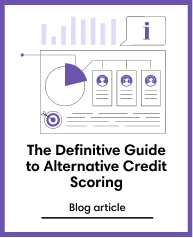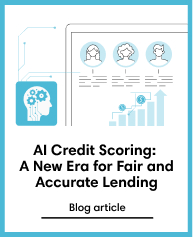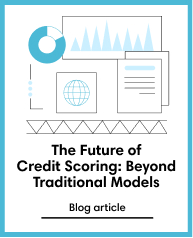Credit Scoring
Feb 8, 2021
Credit scoring in the Philippines | Credolab
Subscribe to our newsletter
From cash to mobile apps: how the fintech industry is empowering the Philippines
Over the past few years, Filipinos have been known for being one of the most active social media users in the world. Data shows that the Philippines has a social media penetration rate of approximately 67% as of January 2020, with Filipinos spending an average of nine hours and 45 minutes just surfing the internet.
Naturally, this proliferation of social media has led to the use of other online platforms well, including e-commerce where financial technology or fintech comes into play.
Financial inclusivity through fintech innovations
Long before the COVID-19 pandemic, many Filipinos have already been using various fintech solutions to complete their daily transactions. Although cash is still king, especially in rural communities and traditional businesses, the Philippines continues to show massive potential in fintech due to factors like the “growing adoption of e-commerce and financial technology to serve the unbanked”. The Department of Trade and Industry even reported that the number of startups entering the fintech sector in the country is growing at an average rate of 16% annually.
In the most basic sense, e-wallet and digital banking apps are now largely instrumental in how Filipinos send and receive payments, pay bills, make donations, use credit, and more.
When the pandemic affected the Philippines, these solutions saw a rapid spike in new users and daily transactions. Mobile wallet app GCash, in particular, saw a 150% increase in the number of registered users in one month. The user base of its rival, Paymaya, similarly grew amidst the crisis as more Filipinos shifted to cashless payment methods.
Many businesses also used these apps to not only digitally accept payments, but seamlessly disburse the salaries of their workers as well.
Even the country’s most traditional banks and telecommunication companies have rolled out their own fintech solutions to keep up with advancements in the finance industry. Banks such as Unionbank, CIMB, ING, and Maybank are making it possible for Filipinos to open accounts without physically going to their branches. Even prior to the pandemic, they have been using artificial intelligence, alternative data, blockchain, and other technologies to launch innovations in remittances, insurance, cryptocurrencies, credit scoring, and lending as part of their mission to promote financial inclusion nationwide.
For instance, CIMB is working with our company, CredoLab, to streamline loan applications using our (discontinued) credit scoring app, CredoApp. Our AI-powered technology helps the digital bank better assess the credit score and repayment behavior of loan applicants. Through alternative credit scoring, which even supports applicants who lack traditional credit bureau data, we are able to digitally promote and execute financial inclusivity for many Filipinos with over 1000 new clients scored within two weeks of using our solution.
On another hand, there’s Unionbank leading the path towards mass crypto adoption in the country. It’s actually the first bank in the Philippines that was able to conduct blockchain-based transactions and launch its own Philippine peso-pegged stablecoin, PHX. Through its i2i network, three rural banks in the country were able to perform buy, transfer, redemption transactions and domestic remittances using PHX.
Fintech in the Philippines moving forward
Of course, these advancements in the finance industry in the Philippines didn’t happen overnight. Fintech only became possible in the year 2000, which was when Bangko Sentral ng Pilipinas (Central Bank of the Philippines) enabled internet banking. Considering that many Filipinos were still not adept with technology during that time, it took a while for fintech to truly flourish in the country.
However, thanks to both technology and the drive of local financial institutions to promote financial inclusivity, we can expect the Philippines to continue catching up with more advanced countries in terms of fintech. Over time, fintech solutions have proven how they can support not just ordinary consumers and businesses but the entire Philippine economy as well. It certainly doesn’t come as a surprise now that the fintech industry is helping the country heal from its financial wounds, which it has been suffering from for decades/
With 77% of the population underbanked, financial institutions in The Philippines can benefit from a solution which offers instant leads to potential loan and credit card applicants, therefore streamlining the underwriting process. Our app also supports ordinary consumers by matching them with the right kind of credit for them based on highly predictable credit analysis.
Get in touch with info@credolab.com to find out how your business can benefit from our instant credit alternative scoring solution.





